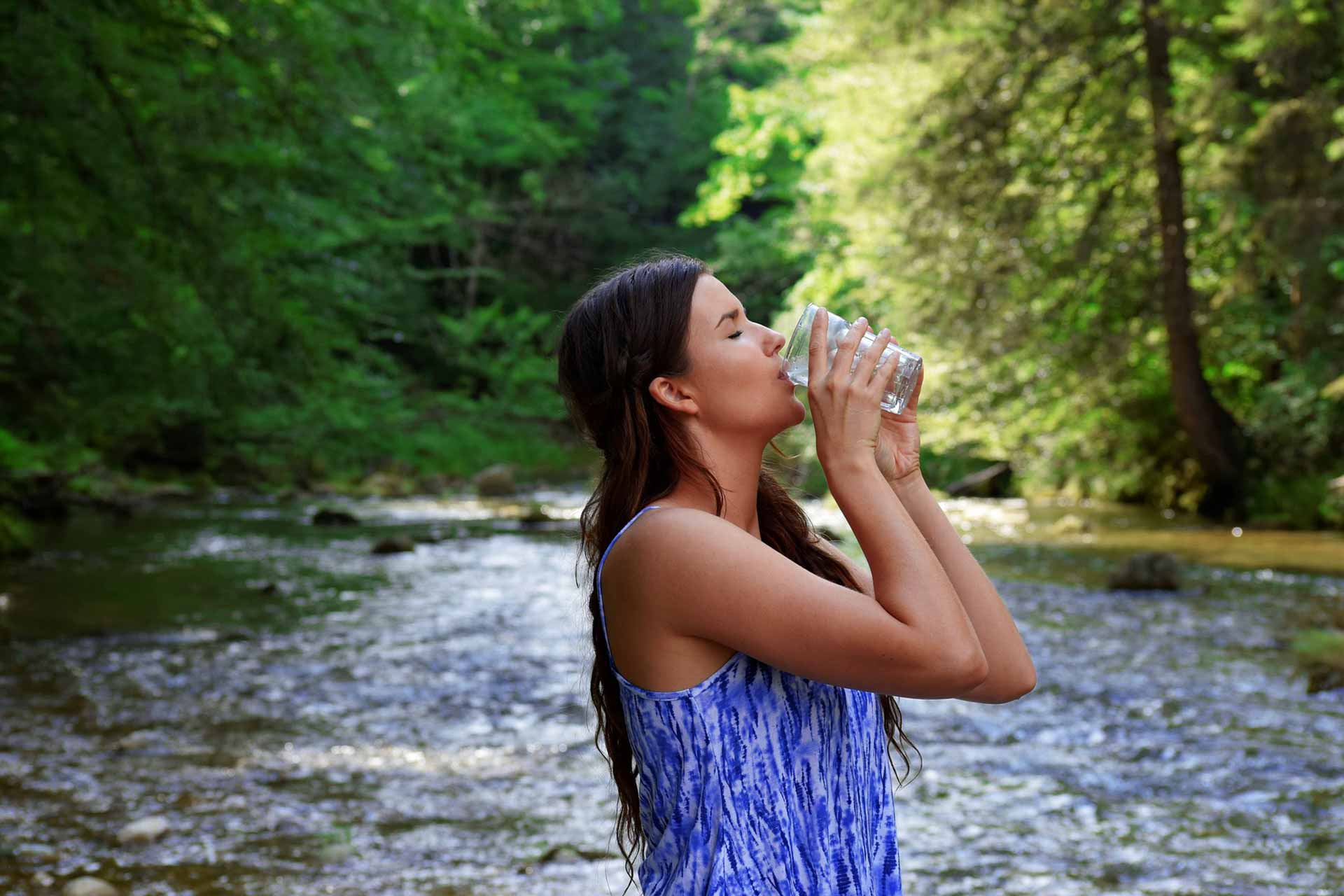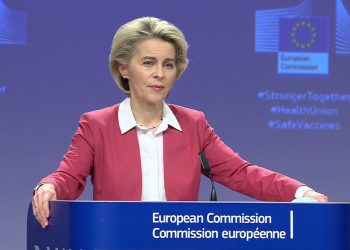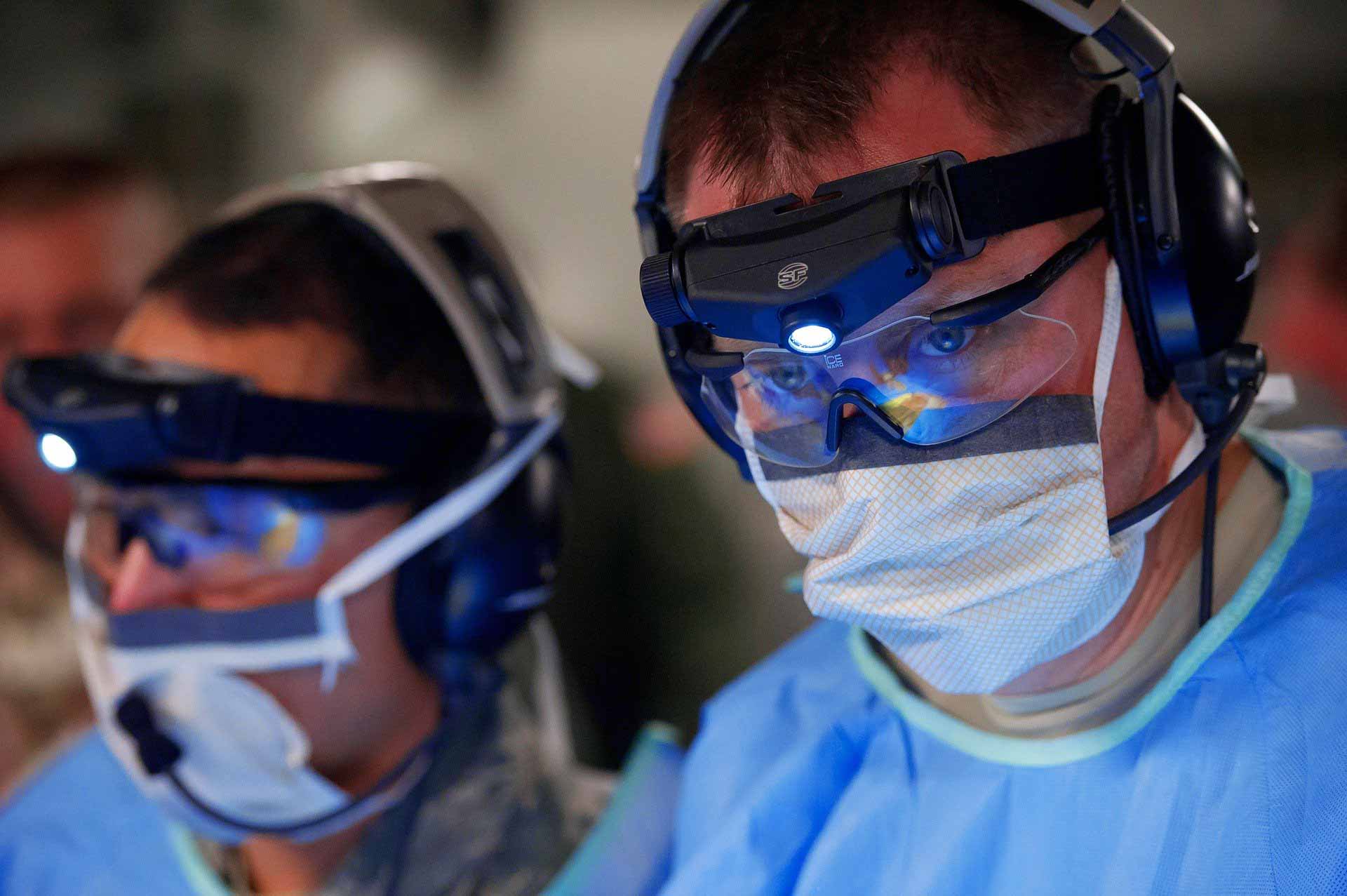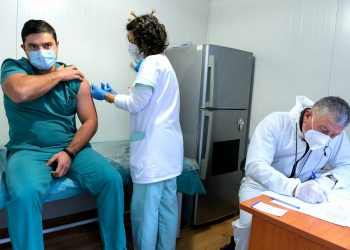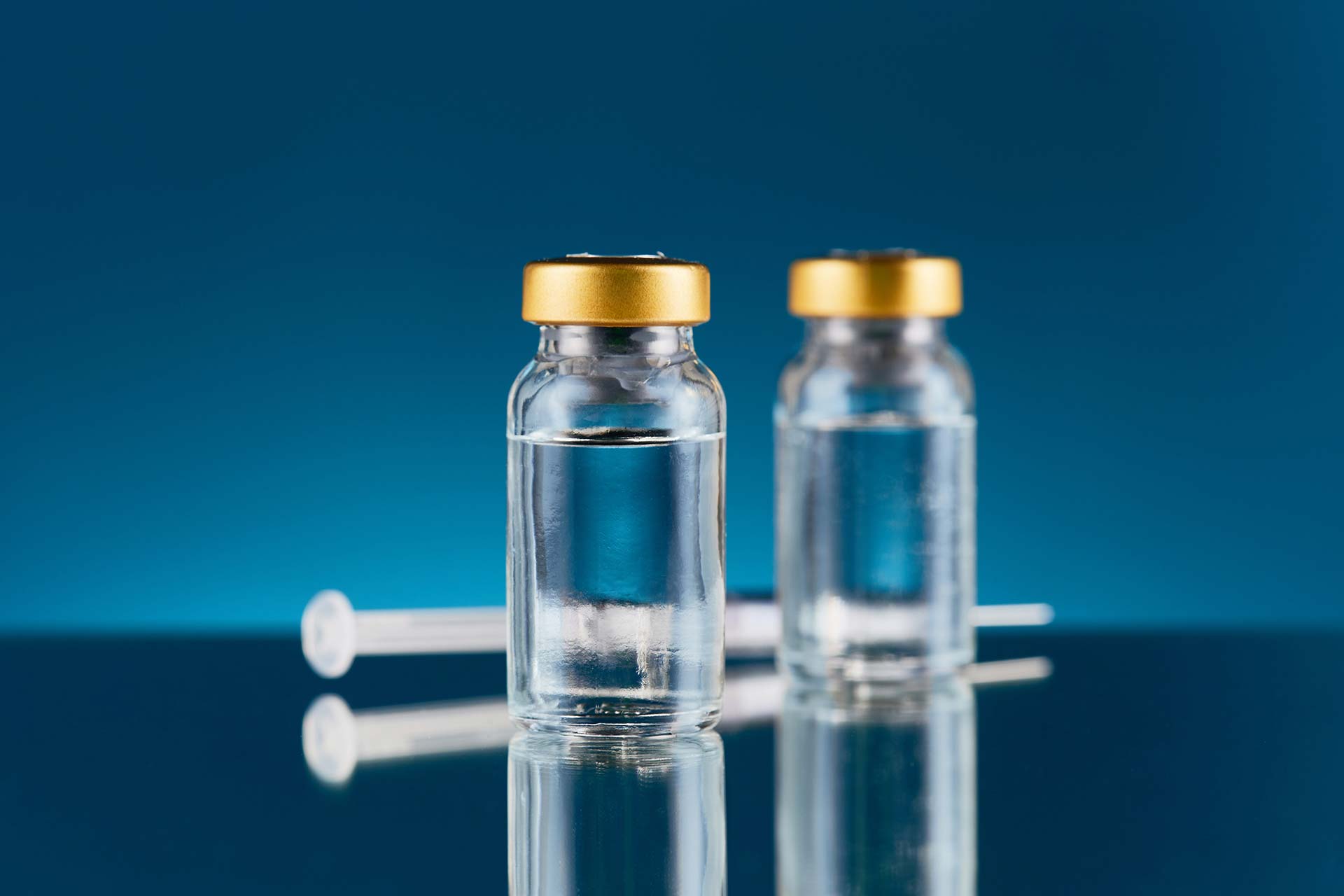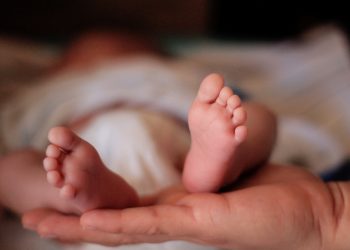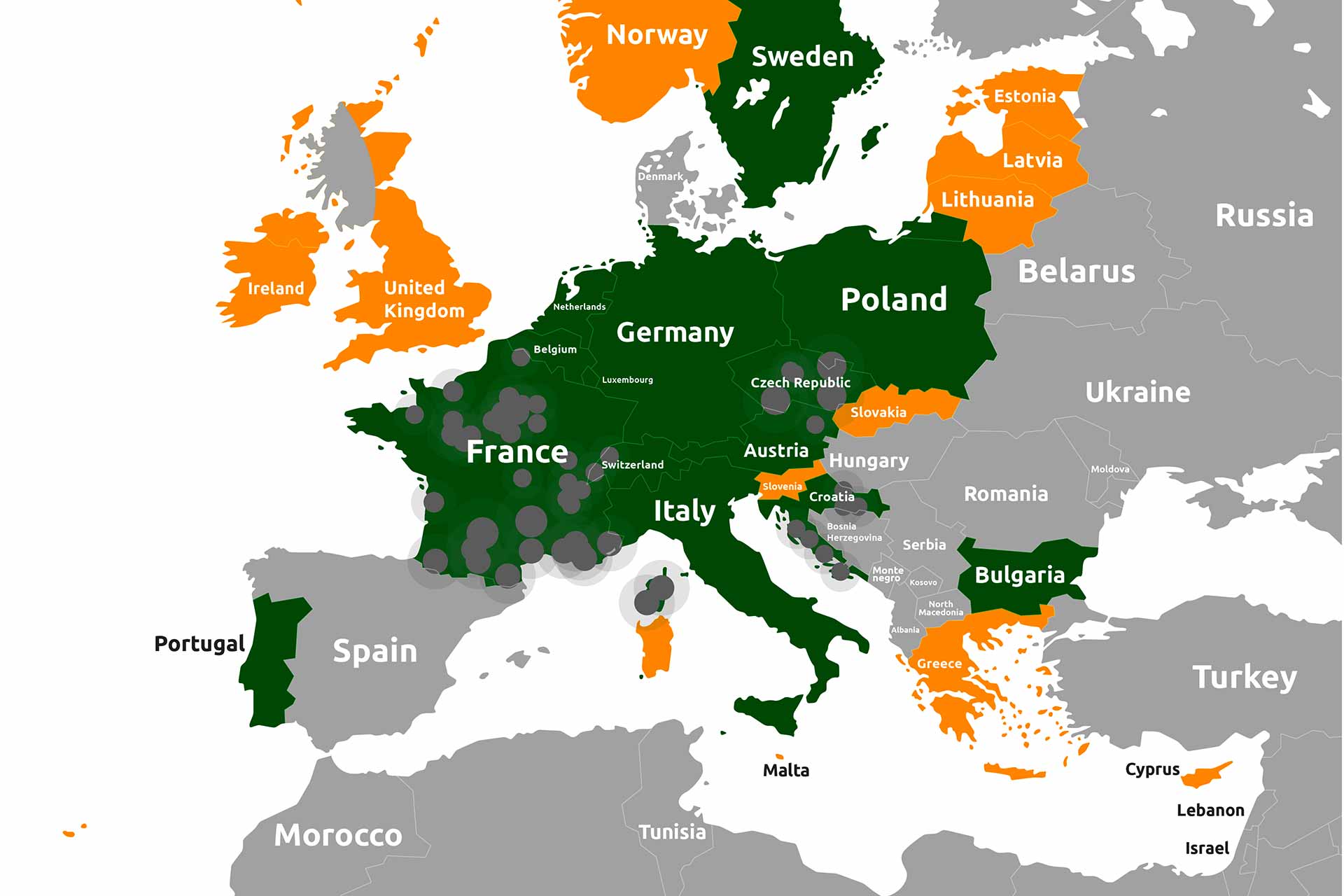Free-flowing drinking water is always better, but can you drink the tap water in Europe? Is it safe free of waterborne parasites and bacteria, as long as there aren’t many physical impurities like mud or dirt. When you’re visiting any of the countries without safe drinking water, you should either rely on bottled water or cleaning filter devices. Find below the full list of water quality in Europe.
Drinking water in the EU
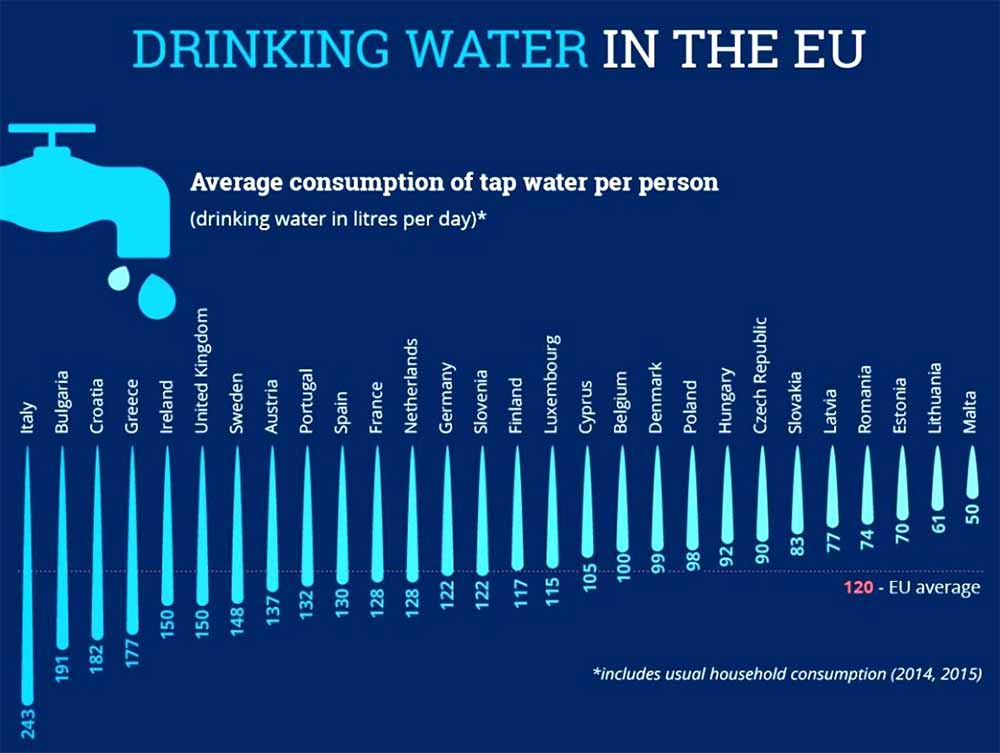
The Water Framework Directive protects EU waters and concerns all ground and surface waters, including rivers, lakes and coastal waters. Bathing waters are monitored for bacteria by EU countries through the bathing water directive. The EU is also updating its drinking water directive to further improve the quality of drinking water as well as access to it while also reducing waste caused by the consumption of bottled water.
Better quality and access
EU has backed new rules to further improve the quality and access to drinking water for everyone and ensure plastic waste from water bottles is reduced. Most people in the EU have good access to high quality drinking water. According to a report by the European Environment Agency (2016), more than 98.5% of tests carried out on drinking water samples between 2011 and 2013, met EU standards.
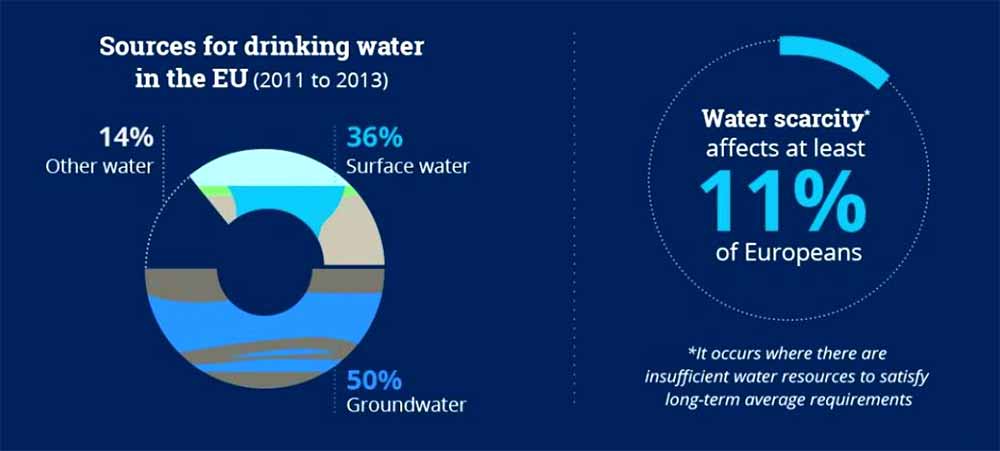
The EU Drinking Water Directive sets minimum quality standards for water intended for human consumption (drinking, cooking, other domestic purposes), in order to protect us from contamination.
On 18 February 2020, the environment and public health committee approved a provisional agreement reached between Parliament and the Council in December 2019 on an update of the rules to increase consumer confidence and the use of tap water for drinking.
The new legislation updates quality standards and sets out minimum hygiene requirements for materials in contact with drinking water, such as pipes or taps, to avoid contamination. Endocrine disruptors, pharmaceuticals and microplastics will be monitored via a watch list mechanism allowing the EU to update surveillance in line with the latest scientific developments.
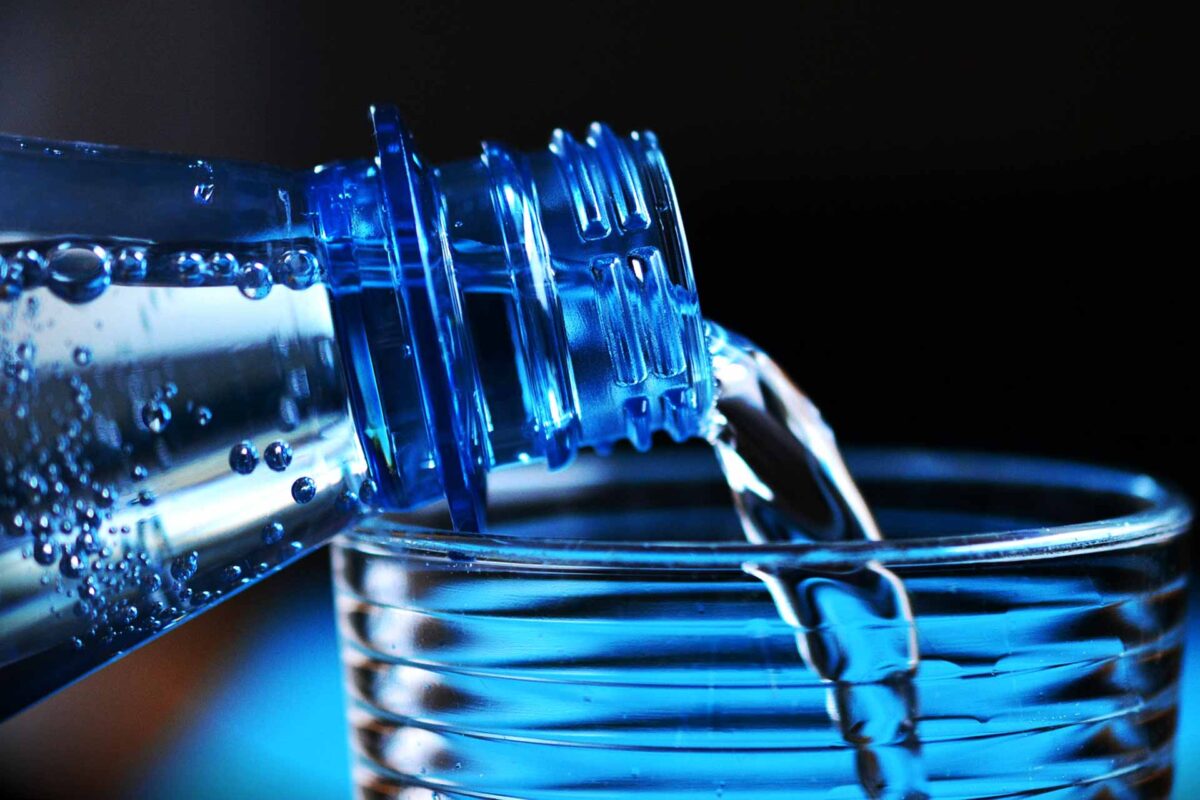
Clean water for everyone in the EU
Under the new rules, EU countries must improve access to clean water for everyone in the EU, especially for vulnerable groups with no or only limited access, such as setting up water fountains in public spaces. On a voluntary basis, they can also opt to encourage the provision of tap water for free or for a low fee in restaurants. Greater transparency and consumer access to information on the quality of drinking water will have to be provided.
Drinking water: new plans to improve tap water quality and cut plastic litter
Drinking tap water is not only cheap, but also environmentally friendly. According to the European Commission, access to better quality water can reduce bottled water consumption by 17%. Less bottled water helps people save money and benefits the environment, by reducing CO2-emissions and plastic waste.
Drinking water is very important to Europeans. The revision of the rules was a follow-up of the successful citizens’ initiative Right2Water, which gathered more than 1.8 million signatures.
Right2Water
Right to water is an European citizens initiative launched to ensure that water remains a public service and a public good.
Right2Water urge that:
- The EU institutions and Member States be obliged to ensure that all inhabitants enjoy the right to water and sanitation.
- Water supply and management of water resources not be subject to ‘internal market rules’ and that water services are excluded from liberalisation.
- The EU increases its efforts to achieve universal access to water and sanitation.
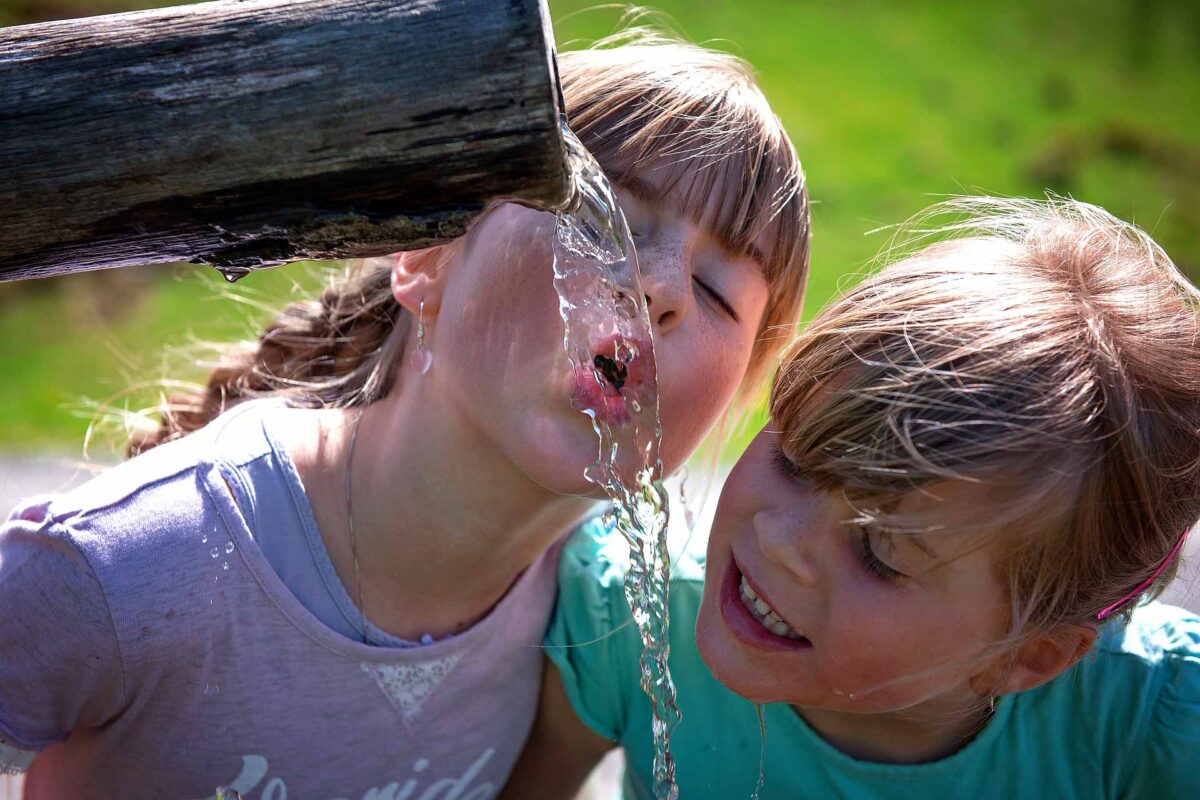
As a public consultation has shown, Europeans feel insecure about the quality of tap water when abroad in other EU countries, although compliance rates are high. They also wish to receive more up-to-date information on the quality of drinking water.
Tap Water in Europe – List of countries
In general, Western Europe has safe tap water and Eastern Europe is a place to be wary of the water. If you’re unsure, take the time to ask a staff member at your hotel or hostel if the water is safe to drink.
Albania
You should not drink the tap water in Albania. Instead, buy bottled water and use the tap water for brushing your teeth and cooking.
Andorra
The tap water in Andorra is perfectly safe to drink.
Austria
You can drink the tap water in Austria—it’s some of the best in the world!
Belarus
You should not drink the tap water in Belarus. Instead, buy bottled water, and use the tap water for brushing your teeth and cooking.
Belgium
You can drink the tap water in Belgium.
Bosnia and Herzegovina
The tap water is safe to drink in Sarajevo, but you should avoid drinking it outside of the capital.
Bulgaria
The tap water is safe to drink in all the main cities and towns. If you’ll be visiting more rural areas, it’s best to avoid it. Just ask the staff at wherever you’re staying if you’re unsure.
Croatia
The tap water is safe to drink in Croatia.
Czech Republic
The tap water is safe to drink in the Czech Republic.
Denmark
The tap water is safe to drink in Denmark.
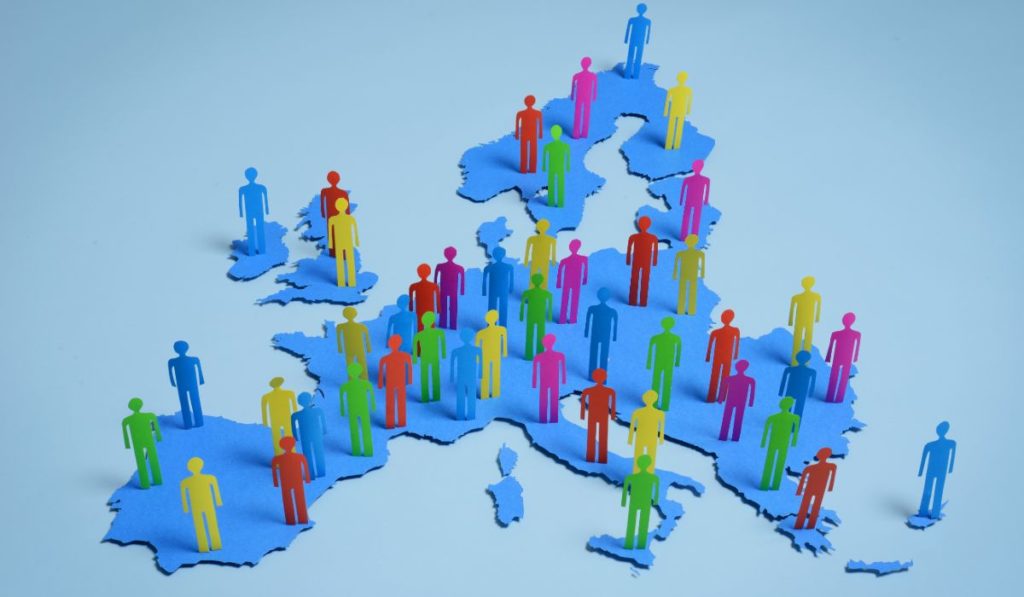
Estonia
The tap water is safe to drink in Estonia.
Finland
The tap water is safe to drink in Finland.
France
The tap water is safe to drink in France.
Germany
The tap water is safe to drink in Germany.
Gibraltar
The tap water is safe to drink in Gibraltar but has been chlorinated so don’t expect it to taste very nice. It’s a bit like drinking water from a swimming pool.
Greece
The tap water is safe to drink in Athens and many of the major cities in Greece. Avoid drinking it on the islands, though, as it’s rarely safe there. If in doubt, ask a local.
Hungary
The tap water is safe to drink in Budapest but you should avoid it outside of any major cities.
Iceland
The tap water is safe to drink in Iceland.
Italy
The tap water is safe to drink in Italy.
Ireland
The tap water is safe to drink in Ireland.
Liechtenstein
The tap water is safe to drink in Liechtenstein.
Lithuania
The tap water is safe to drink in Lithuania.
Luxembourg
The tap water is safe to drink in Luxembourg.
North Macedonia
The tap water is safe to drink in North Macedonia.
Malta
The tap water is safe to drink in Malta.
Monaco
The tap water is treated with chlorine in Monaco.; though it is safe to drink, it may cause stomach pain so it’s advised to drink bottled water.
Montenegro
You should not drink the tap water in Montenegro. Instead, buy bottled water, and use the tap water for brushing your teeth and cooking.
The Netherlands
The tap water is safe to drink in The Netherlands.
Norway
The tap water is safe to drink in Norway.
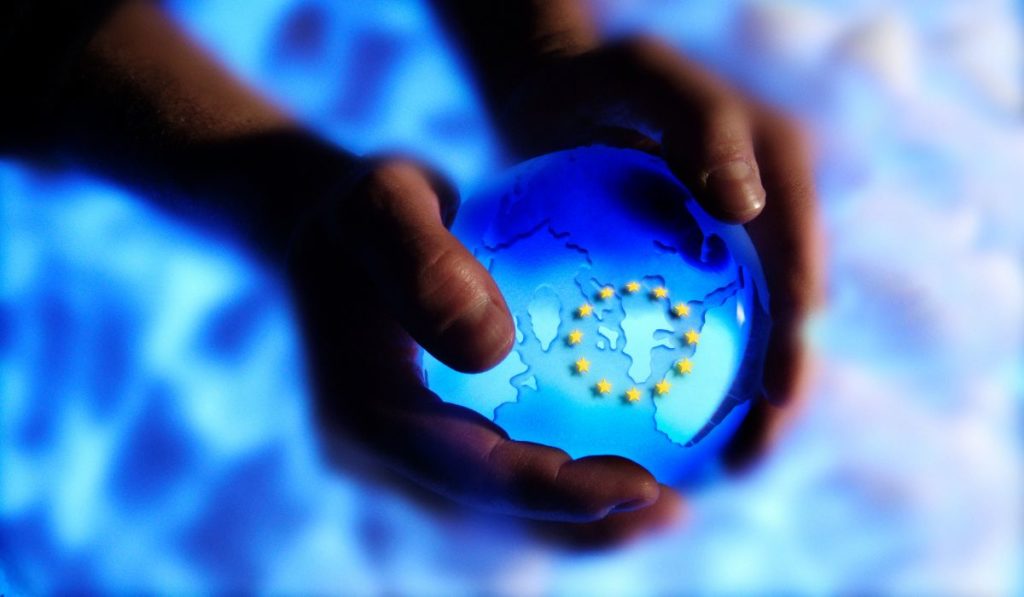
Poland
The tap water is safe to drink in Poland.
Portugal
The tap water is safe to drink in Portugal.
Romania
The tap water is safe to drink in all major cities in Romania. Outside of the cities, you’ll want to be a little more careful and stick to bottled water. Ask your hotel or hostel owner if you’re unsure whether you can drink it.
San Marino
The tap water is safe to drink in San Marino.
Serbia
The tap water is safe to drink in all major Serbian cities. If you’ll be heading out into the countryside, it’s best to stick to bottled or purified water.
Slovakia
The tap water is safe to drink in Slovakia.
Slovenia
The tap water is safe to drink in Slovenia.
Spain
The tap water is safe to drink in all Spanish cities.
Sweden
The tap water is safe to drink in Sweden.
Switzerland
The tap water is safe to drink in Switzerland.
United Kingdom
The tap water is safe to drink in the United Kingdom, and London’s water is on the Top 10 list of the cleanest water in the world.
Ukraine
Ukraine has the worst water quality in Europe. You should not drink the tap water in Ukraine, and you should also avoid using it for brushing your teeth.
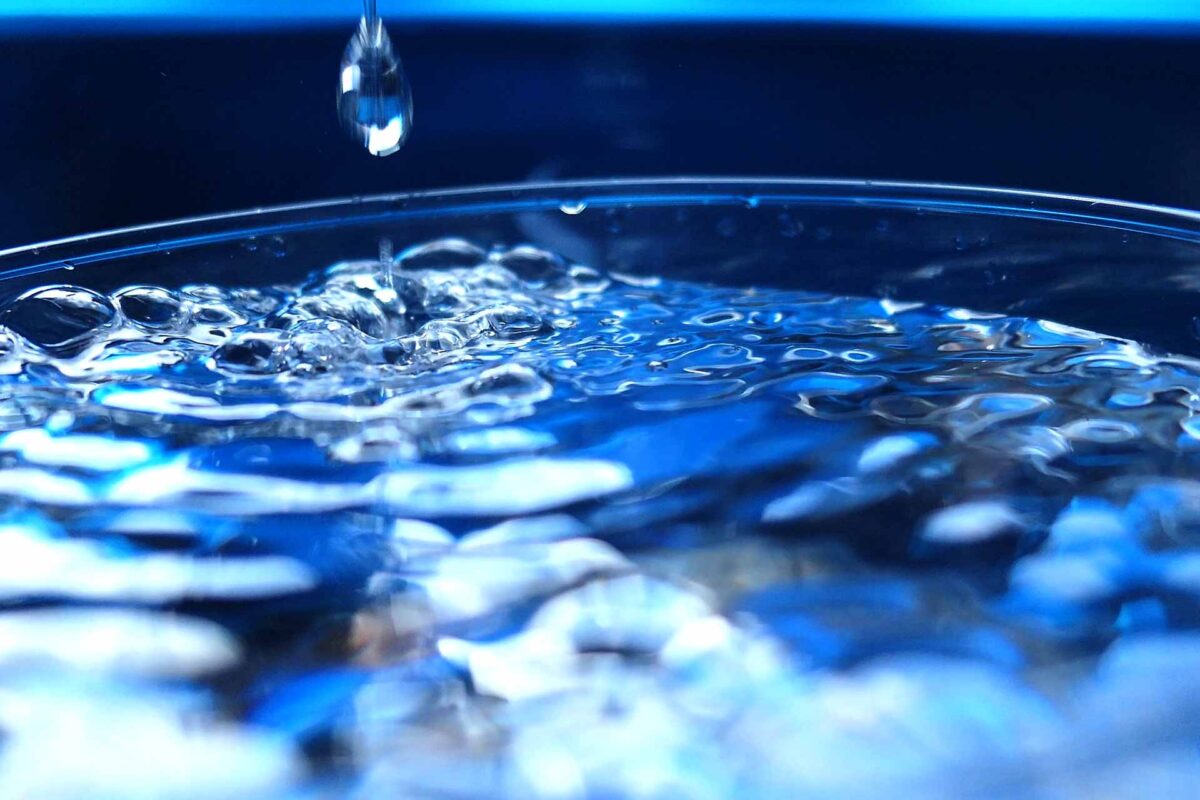
How is water treated?
Water goes through a rigorous treatment process to remove any compound that could pose a threat to our health. This treatment process involves four stages that make your water ‘clean enough to drink.’
- Coagulation and Flocculation
This uses chemicals that bind with other waterborne compounds to form larger particles, which creates a solid mass called floc. - Sedimentation
As floc is denser than water, it drifts to the bottom of the water treatment tank during a sedimentation process, settling in a removable layer. - Filtration
Once the suspended floc has been removed, the residual clear water is passed through sand, gravel, or charcoal filters that take out dissolved particles, parasites, bacteria, viruses, and toxic chemicals. - Disinfection
The final water treatment stage is disinfection with chlorine. This process not only removes remaining pathogens, but keeps the water supply clean as it passes through the pipeline.
Is water treatment always successful?
Despite the standards and rigorous supervision, water treatment isn’t always effective. The EU helps to improve public health though funding and legislation on a wide range of topics, such as food, diseases, clean air and drinking water. Health policies are funded through the EU Health programme, which encourages cooperation and promotes strategies for good health and healthcare.
Local water companies get their supply from surface water and ground water, which are open to environmental contaminants and a liable to become polluted. Surface water includes lakes, rivers, and streams.
Trust on EU tap water
The EU plan aims to increase citizens’ confidence in the water supply and increase the use of tap water for drinking. If confidence in tap water improves, citizens can also contribute to reducing plastic waste from bottled water, including marine litter. Everyone should have access to clean and good quality water, and we should do our utmost to make it as affordable as possible for everyone.

